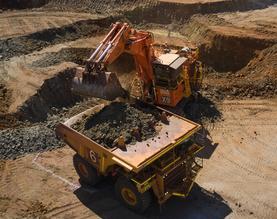China’s recent restrictions on rare earth exports have laid bare critical weaknesses in global supply chains. Yet, as Dr. Ashwani Mahajan, Professor in the Department of Economics at PGDAV College and a noted economist, columnist, and policy advocate, argues, this disruption also offers a powerful opportunity for India to strengthen its critical mineral capabilities, fortify domestic supply chains, and position itself as a viable global alternative.
Dr. Mahajan in his recent blog at WordPress, points out that economic coercion throughout history has often triggered waves of innovation, decentralization, and diversification. China’s latest move of tightening controls over rare earth elements and associated technologies has sent shockwaves through sectors like aerospace, defense, and electric mobility. While the official justification centers around environmental and national security concerns, it is clear these export restrictions serve as instruments of strategic pressure.
Instead of implementing a full export ban, China has introduced strict licensing requirements for key rare earths such as samarium, gadolinium, terbium, dysprosium, lutetium, scandium, and yttrium, as well as high-performance magnets derived from them. The fallout was immediate: China’s rare earth magnet exports dropped by 74% year-on-year in May 2025, a blow to global manufacturing.
Although primarily aimed at the United States, these curbs are affecting countries across the globe, including India. Despite a temporary 90-day tariff truce between Beijing and Washington and assurances on civilian exports, military-sensitive and high-grade materials remain tightly controlled. The underlying message is unmistakable: China is prepared to weaponise its mineral dominance for geopolitical gain.
Globalization’s Fragile Foundations
According to Dr. Mahajan, this episode underscores the illusion of frictionless globalisation. The notion of seamless, hyper-efficient global production collapses when critical links are monopolised by a single, coercive actor. With this realisation dawning globally, nations are now moving quickly to reduce dependence on vulnerable supply chains.
India’s Strategic Response
Dr. Mahajan emphasises that India must seize this moment as a strategic curve point. Countries like Australia, Argentina, South Africa, Brazil, and Canada are rich in lithium, cobalt, graphite, nickel, and other critical minerals. India must strengthen diplomatic and economic ties with these nations through bilateral trade deals, and direct investments by Indian public and private sector companies in overseas mining.
At home, India should ramp up mineral exploration in regions such as Jammu & Kashmir and Karnataka (lithium), Andhra Pradesh, Odisha, and Jharkhand (rare earths), and Chhattisgarh (graphite). Dr. Mahajan advocates a strong public-private partnership (PPP) model backed by regulatory simplification and environmental collaboration with technologically advanced partners like South Korea and Japan.
He also recommends creating a national stockpile of critical minerals, similar to China’s reserves, to guard against future supply disruptions. Battery recycling, already showing positive outcomes, should be scaled up with targeted incentives for private players.
Further, India must build indigenous capacity for manufacturing rare-earth-based components like magnets used in electric vehicles and wind energy systems. Dr. Mahajan proposes setting up an Indian Critical Minerals Board to coordinate efforts across mining, processing, and high-tech applications.
Weakening China’s Monopoly
While China’s tactics might cause short-term disruption, Dr. Mahajan believes they will likely accelerate the erosion of its dominance. The U.S., Canada, Australia, and Vietnam are already intensifying mining and refining activities. India, too, is making strides. Globally, research into alternatives, such as ferrite magnets, is advancing, and battery recycling is emerging as a viable new source for materials like lithium and cobalt.
China has used rare earth leverage before. In 2010, it halted shipments to Japan amid a territorial dispute, leading to price surges, diversification of sources, and a WTO ruling against Beijing in 2014. A similar misstep today could damage China’s credibility and accelerate long-term shifts in global supply chains.
India’s Strategic Window
Dr. Mahajan strongly believes that with focused investments in extraction, processing, and value-added manufacturing, India can position itself as a global hub for rare earths and critical minerals. Indian Rare Earths Limited (IREL) should be scaled up, and partnerships with friendly countries can provide necessary technology and capital.
As India looks to secure critical inputs for electronics, EVs, and renewable energy, domestic value chains must be built on a foundation of secure, sovereign mineral supplies. Dr. Mahajan also sees alignment between these efforts and broader global shifts toward economic autonomy, from de-dollarisation to alternatives to systems like SWIFT.
India’s push to promote the rupee in international trade and to develop indigenous capabilities dovetails with these transformations, reinforcing the case for strategic independence.
Turning Challenge into Leadership
In conclusion, Dr. Ashwani Mahajan stresses that economic coercion often accelerates global decentralisation and resilience. China’s current strategy may, in fact, weaken its own dominance over time. For India, this is not merely a crisis; it is a once-in-a-generation opportunity to assert its economic sovereignty, enhance strategic autonomy, and emerge as a credible global leader in critical mineral security.
Global trade must be based on trust and cooperation, not coercion. By weaponising supply chains, China risks isolating itself and paving the way for a more decentralised and self-reliant global order; one in which India can play a pivotal rol








